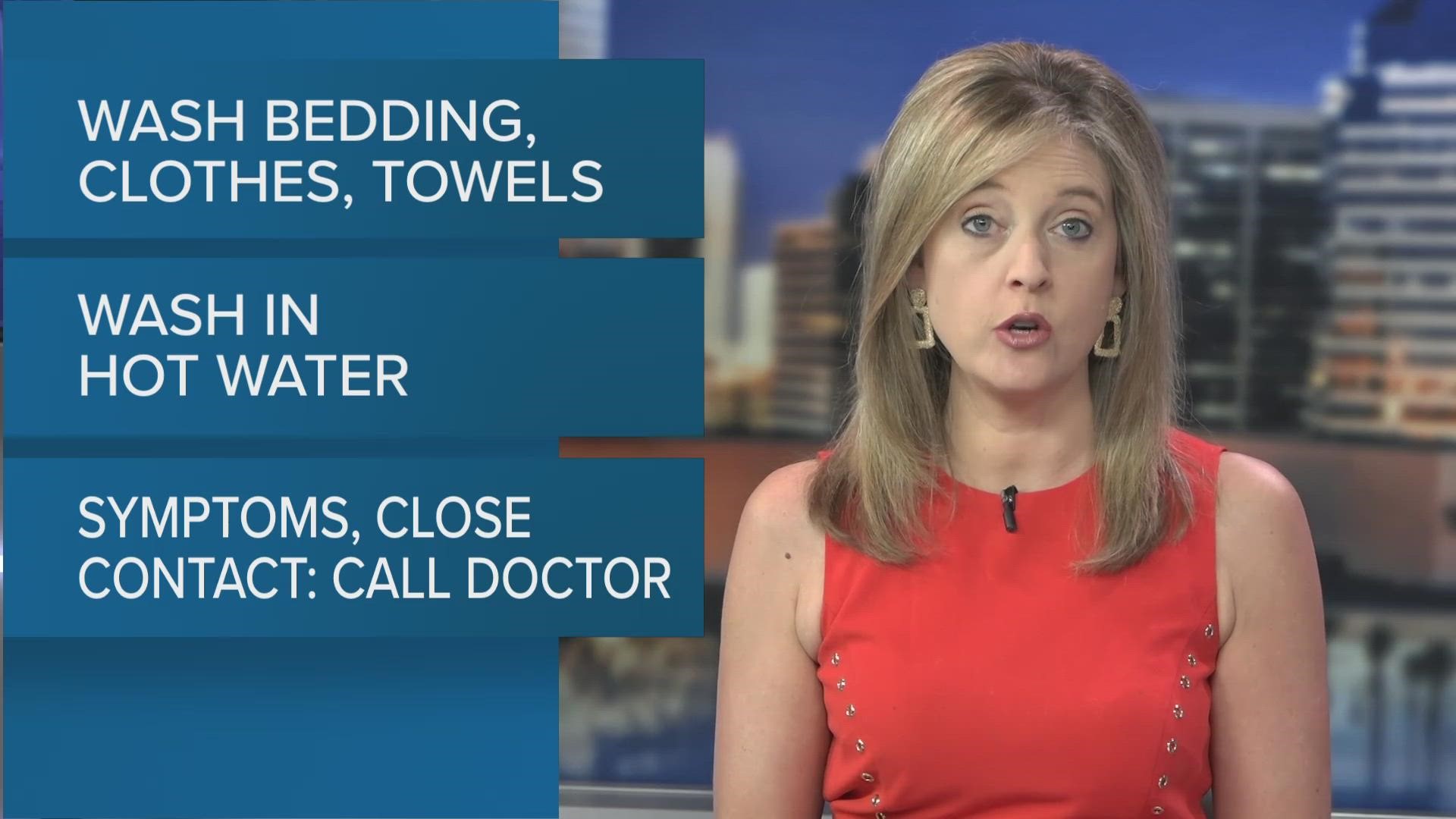JACKSONVILLE, Fla. — (The video above is from a previous, unrelated report)
Update: Student Health Services identified 13 students who either required treatment for infection or prophylactic treatment due to exposure to scabies. Four of the students have been diagnosed with the infection.
Hundreds of students living at a dormitory at the University of North Florida in Jacksonville have been notified of a potential exposure to scabies.
Scabies is an itchy skin rash caused by a tiny burrowing mite called sarcoptes scabiei, according to Mayo Clinic. The most common symptoms of scabies are intense itching and a pimple-like skin rash.
The university says 347 student residents in Osprey Cove were notified by Student Health Services last week that they might have been exposed to a student with scabies.
The university sent a mass email to all Osprey Cove Buildings T and V residents on Friday with general information and recommended next steps.
"Out of an abundance of caution, all residents of Osprey Cove T and V building are receiving this e-mail....Student Health Services is notifying you because you may have been exposed to a student with scabies."
(You can read the full email below.)
The university says if you believe you have been impacted, you should wash bedding, clothing, and towels. Scabies do not survive more than 2 to 3 days away from human skin. Items that cannot be washed can be decontaminated by removing from any bodily contact for at least 72-hours.
UNF says if you are experiencing any signs or symptoms of scabies, have had prolonged, skin-to-skin contact with a person with signs or symptoms of scabies, or are a roommate of someone with scabies, you are encouraged to contact Student Health Services, or your primary care physician, to be assessed.
Full email to students:
February 3, 2023
Out of an abundance of caution, all residents of Osprey Cove T and V building are receiving this e-mail.
Student Health Services is notifying you because you may have been exposed to a student with scabies. Scabies is an infestation of the skin by the human itch mite, which burrows into the upper layer of the skin and lays its eggs. The scabies mite is spread by direct, prolonged, skin-to-skin contact with a person who has scabies. It can spread rapidly under crowded conditions where close body and skin contact is frequent.
Symptoms may take 4-8 weeks to develop. An infested person can spread scabies during this time, even if they do not have any symptoms.
The most common signs and symptoms of scabies are intense itching, especially at night, and a pimple-like itchy rash. The itching and rash each my affect much of the body or be limited to common sites such as the wrist, elbow, armpit, webbing between the fingers, nipples, penis, waist, beltline, and buttocks. The rash can also include tiny blisters and scales.
Anyone who is diagnosed with scabies, as well as their sexual partners or other contacts who have had prolonged skin-to-skin contact with an infested person should be treated. Treatment is recommended for persons who live in the same household/room. Student Health Services will notify you directly to seek treatment if a roommate(s) is known to be infested.
Next steps:
- We recommend that you wash bedding, clothing, and towels. Scabies do not survive more than 2-3 days away from human skin. Items such as bedding, clothing, and towels used by a person with scabies can be decontaminated by machine-washing in hot water and drying using the hot cycle. Items that cannot be washed can be decontaminated by removing from any bodily contact for at least 72-hours.
- If you are experiencing any signs or symptoms of scabies, have had prolonged, skin-to-skin contact with a person with signs or symptoms of scabies, or are a roommate of someone with scabies, you are encouraged to contact Student Health Services, or your primary care physician, to be assessed. Based upon your history, you may require prophylactic treatment. Please call (904) 620-2900 for an in-clinic appointment (if you have an itchy rash or other symptoms) or telehealth appointment (if you believe you've been exposed).
Please note, per the CDC, fumigation or “bombing” of resident rooms is unnecessary and not recommended. If you have a specific maintenance concern in your assigned room, including a pest control concern you have visually verified (not including Scabies), please submit a maintenance request by visiting https://www.unf.edu/housing/resources/maintenance-request.html
A resource handout from the CDC is attached. You can find more information here: https://www.cdc.gov/parasites/scabies/index.html
Thank you,
Dr. Valerie Morrison, DBA, MSM, BSN, RN, NEA-BC, SHRM-SCP
Captain (retired), Nurse Corps, U.S. Navy
Director for Student Health Services
University of North Florida

